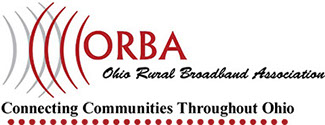ORBA is "Connecting Communities" Throughout Ohio
A consortium of independent telcos and CLECs working together, sharing knowledge and
commonalities to promote and serve rural areas of Ohio
Copyright © Ohio Rural Broadband Association 2023 I Website Design: After Dark Graphics










